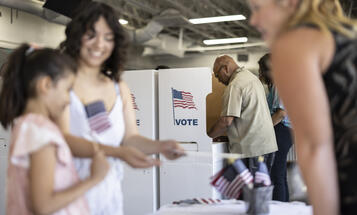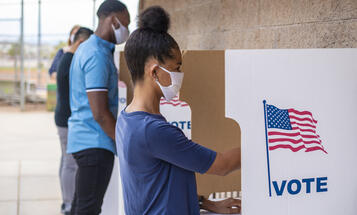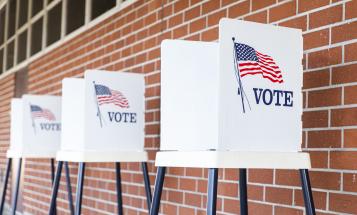
Shelby County's Damage Evident in North Carolina Voter ID Decision
2016 will likely be remembered for a deeply polarizing presidential election that brought out huge numbers of voters. However, as a result of newly enacted voting restrictions in place in approximately 17 states, it may also be remembered for massive voter disenfranchisement
Yesterday, the right to vote in the U.S. met a serious blow when a federal district court in North Carolina upheld a series of new voting restrictions that impose strict voter ID requirements, eliminate same-day registration, reduce the early voting period by 7 days, repeal out-of-precinct voting, and end pre-registration for 16- and 17-year-olds.
Just a few years ago, North Carolina was viewed as providing the gold-standard for voter enfranchisement practices. And, the new restrictions—put into place in 2013 shortly after the U.S. Supreme Court decided Shelby County v. Holder and struck down a key provision of the Voting Rights Act of 1965 (“VRA”)—were among the most drastic rollbacks in the nation.
Shelby County unraveled a part of the VRA that required jurisdictions with a history of voting discrimination show the federal government that any proposed change to their voting laws or practices would not disproportionately burden people of color, prior to enacting any such change (a process known as “preclearance”). Without this protection in place, voting rights advocates must challenge new practices after they have been put in place to prove that the voting restriction will disproportionately disenfranchise people of color. The result: the party with the burden of proof has shifted and the shield protecting the fundamental right to vote has been severely damaged.
Shelby County’s damaging impact is evident in the 485-page opinion issued yesterday in North Carolina. Judge Thomas Schroeder recognized that North Carolina had “sordid history” of discrimination, but stated that “for the last quarter century, there is little official discrimination to consider.” In this statement, Judge Schroeder failed to recognize that the protections previously afforded by the VRA were likely the reason that official discrimination has been less apparent in the state over the last quarter century. He also failed to recognize that immediately after VRA’s shield was lowered, the state seized on the opportunity to create new, serious hurdles that restrict the ability of Tar Heel residents to exercise their right to vote.
Further, the court stated that the:
Plaintiffs established that some segment of the State’s African Americans endure socioeconomic disparities that can be linked to State discrimination and this may make it more difficult for them generally to participate in any electoral system. Plaintiffs, however, failed to show that such disparities will have materially adverse effects on the ability of minority voters to cast a ballot and effectively exercise the electoral franchise[.]
This flies in the face of recent evidence brought to light during last month’s North Carolina Primary Election, when it was reported that:
- 218,000 of North Carolina’s registered voters lacked an acceptable form of voter ID;
- The voters who lacked the appropriate form of voter ID were disproportionately black;>
- 3,000 provisional ballots were cast because of voter ID issues; and
- Some people who lacked an appropriate form of voter ID were not offered provisional ballots.
Thankfully, Judge Schroeder’s decision will likely soon be appealed. The outcome of this appeal—as well as voting rights battles being waged in Texas, Wisconsin, Ohio, North Dakota, Utah and other states—will determine whether 2016 will be remembered as a presidential election year when political and judicial decisions resulted in widespread disenfranchisement across the U.S.



